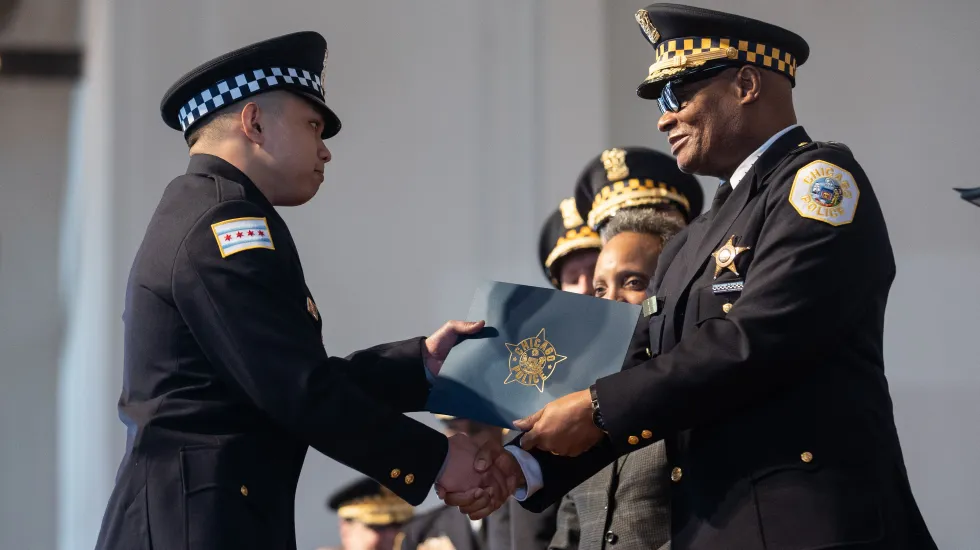
It’s welcome news that shootings in Chicago are down 14% in the first quarter of 2022, although we are still up about 60% from pre-pandemic rates. I am hopeful we can continue this positive trend, but I am concerned that with crime affecting every neighborhood, the public appetite for alternative approaches to public safety will dim and the truth will fall prey to politics.
With that in mind, I want to share some results of a poll I commissioned in February when I was considering running for mayor. Polls are just a snapshot, but they still offer important insights as to where people stand on issues.
Opinion
First of all, crime is far and away the most important issue to Chicago voters. In an open-ended question, 62% of the 750 people polled listed crime as the top issue. The second most important issue, at 11%, was jobs. Education, affordable housing and taxes were all in single digits.
Second, in a straightforward question as to whether Chicago has too few police, the right amount, or too many, 64% said we have too few, 19% said we have the right amount, and just 10% said we have too many. Breaking out the results by race, Blacks were most likely to say we don’t have enough police.
Trust above all
Here’s where the poll got interesting. We asked if “the first step” to making Chicago safer was “rebuilding trust” or “tougher enforcement and more police.” Trust won big by a 58%-34% margin. Again, Blacks were most likely to choose “trust” over “tough.” So even as they want more police, they want a trusting relationship above all.
We also asked a series of policy-related questions. For example, 72% favored shifting some responsibilities for public safety, including non-criminal and non-violent activities, to civilians so that police can focus more on violent crime.
While some equate this idea with “defunding police,” it’s really more fundamental: We’re challenging ourselves and each other to rethink the role of police. We should ask if police spend too much time responding to non-criminal calls like noise complaints and traffic accidents and non-violent crimes like drug use, and not enough time deterring and investigating violent crime. Clearly, the public is open to this conversation, and it’s on all of us — including police — to help make it happen.
Consistent with the earlier findings, 63% of voters we polled are concerned about cuts in the overall number of police, the high number of vacancies and the rising number of retirements. They want to see police on patrol, walking the beat and building relationships in the community.
But they also know police can’t do it alone: 68% support violence prevention strategies like those already underway in Chicago in which trained outreach workers intervene in disputes before they lead to shootings, negotiate peace agreements among rival factions, and support young people at risk with counseling, education and job-training.
Finally, people understand that one of the keys to reducing violence is providing at-risk young men and women a pathway into the legal economy. In fact, 67% of those polled agreed that we should provide jobs to high schoolers, those out of school and people returning from prison.
In the year ahead, we will have an election in Chicago that will focus heavily on crime. While I will not be a candidate, I will be actively engaged as a citizen. As the campaign unfolds, my hope is that voters make judgments based on facts and truth.
Opinion This Week
A weekly overview of opinions, analysis and commentary on issues affecting Chicago, Illinois and our nation by outside contributors, Sun-Times readers and the CST Editorial Board.
The ongoing debate around murder clearance rates is a useful example. Chicago police often highlight the rising murder clearance rate, but a recent Chicago Sun-Times story affirms that official clearance rates include many murders that don’t actually lead to arrests. In many cases the murders are cleared years, and sometimes decades, after they happened.
From the victim’s point of view, there is little justice in a case that is “cleared” years later or without an arrest. I also suspect that clearance rates for non-fatal shootings are far lower than for fatal shootings, if only because there are so many, yet they are just as likely to drive retaliation violence. Absent real justice, we get street justice, and violence continues.
More than anything, our poll shows that Chicagoans want the truth and understand that what we are doing today is insufficient. They want greater safety for their families and communities, and they are eager and willing to discuss ways of doing things differently. We should all be talking — and listening — to them.
Arne Duncan is a managing partner with Emerson Collective and the founder of Chicago CRED, a violence prevention organization
Send letters to letters@suntimes.com.







